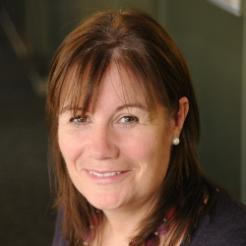Carolyn Sims, head of Banking at Charity Bank, said there has been a decline in the number of charities borrowing in the last few months, which she suggests is linked to the Comprehensive Spending Review.
She said that generally more charities are borrowing money, yet there has been a pause in the number of charities doing so in the last three to four months.
She said that she believes is probably to do with charities “waiting for the outcome of the comprehensive spending review”, and that they want to see what comes out of that.
The Comprehensive Spending Review will decide how much money is available to spend in each government department. The results will be announced in the Chancellor's Autumn Statement on 25 November.
Sims also said that Charity Bank lends to a significant number of housing organisations, which have been hit by a reduction in rents and are having to rework their business plans and decide what they are going to do.
She said that a number of these organisations now have significant gaps in their business plans.
She said this shows it is important to “stress test” a business plan, as these housing associations would not likely have anticipated a reduction in rents.
Sims suggested that if an organisation is borrowing funds and things do go “adrift”, to make sure they are open and honest with their lender as they will find out eventually.
The financial strategies event, run by the Honorary Treasurers Forum, was called 'What can trustees learn from Kids Company closure?' It followed on from the closure of high profile charity Kids Company earlier this year, and BeatBullying the previous year.
The group discussion also referenced “founder syndrome” and “mission drift” as likely contributors to Kids Company’s downfall, and called on the importance of treasurers and trustees to be on top of the charity’s finances. An underlying message from the event is that honorary treasurers and other trustees should not be surprised by what they find in the accounts.
Mark Salway, director of social finance at Cass CCE and former finance director at Care International, said he was concerned about the number of charities who do not know what their overheads are.
He referred back to a report by accountancy firm Baker Tilly, called The current and future state of charities 2015: Spring into action, which revealed that as many as 6 per cent of organisations providing services said that they do not take into account their overhead costs.
Salway also expressed concern about the future of African NGOs, which he said are not sustainable because they do not have income coming from grants and do not have a trading basis to back them up.
He said: “They then turn to donations which will not sustain them unless they have a dramatic shift in terms of their impact.”










